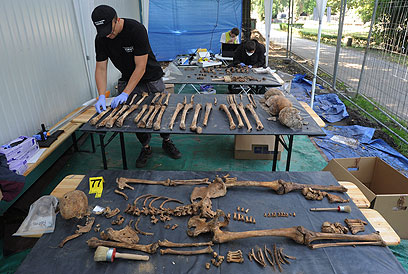In 2001 the Taliban targeted this unique and historic site completely destroying the Buddha. The Taliban are well known for their violent actions based on their extremist beliefs. In this case
they made a statement that was heard around the world, by Mullah Omar:
The Taliban made a statement in 2001 claiming that they would destroy all pre-Islamic statues in the country. Not only did they destroy this site but they went on a rampage defacing as many icons as possible associated with the pre-Islamic cultures."The real God is only Allah, and all other false gods should be removed."
What I find especially interesting is the insight into the perspective of the Taliban who targeted this artifact to terrorize and destroy the livelihood of the locals who lived there. It is really truly disturbing what they did in order to make a point. Talk about the ethical issue here. This is a blatant attack on a specific group of people and a cultural identity. It was such a statement that some of the locals were forced to plant the dynamite in their very own religious icon.
Such actions are referred to as cultural terrorism: one of the other issues facing archaeologists is the definition of cultural terrorism and how exactly is the best way to stop it. There are many such instances of defacing artifacts that have some sort of cultural affiliation with a group of people who become targeted by a terrorist group. Even misunderstandings of their own cultural history can cause people to deface their own history. When I was in Belize, our tour guide pointed out the machete marks all over different stela (historical markers of the Mayan civilization). He then explained that local gangs would destroy these artifacts to prove a point. This is at a much smaller scale than what happened with the Buddhas. But it does pose a question:
What can we do to stop such discrimination and violence? It really becomes an interdisciplinary problem. Archaeologists cannot do this alone. As a UNESCO world heritage site this holds a level of universal problems because it is not just one country it involves multiple countries and cultures.
Even over ten years later the questions still rage, what is to become of the Buddha's? The livelihood of the people who live there. . . Rebuild or not? Rebuilding what does that mean? It may be a slight band aid on the bigger problem. Does rebuilding solve the problem of the Taliban? Does it solve the problem of cultural terrorism? What do you think??








